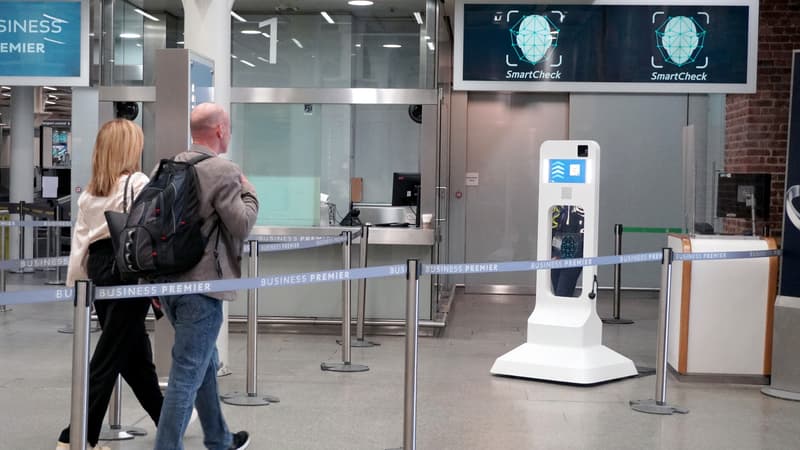At London’s St Pancras station, the agents are now partly replaced by a machine. A facial recognition system has been put in place to verify the identity and tickets of travelers taking the Eurostar, the BBC reports.
Since July 17, some passengers departing from the British capital can avoid conventional controls by going through a biometric corridor. This novelty is, for the moment, reserved for passengers holding Business Premier tickets and members of Carte Blanche, one of the railway company’s loyalty programmes.
Specifically, before boarding the train, passengers will have to scan their ID, face and ticket on a dedicated app. Then, they take a short detour through the biometric corridor so that a camera identifies the face and validates the passage “in less than two seconds” according to Eurostar. Instead, in Paris and Lille, French customs officials will control passports, this time without a machine.
The solution, called Smartcheck, is developed by the iProov company and a single device has been installed at St Pancras station. Contacted by Tech&Co, Eurostar affirms that “for the moment [ce n’est pas] There are no plans to extend this solution to other stations.”
Data deleted after 48 hours
Although this facial recognition system may be reminiscent of certain terminals present in US airports, Eurostar specifies that it is not the same device: at St Pancras, travelers do not have to physically take out tickets or passports and agents are not searched. to perform additional checks.
Regarding data protection, Eurostar confirms that the devices comply with the GDPR and specifies that the data “is deleted within 48 hours of the user’s trip.” And to state: “at all times, the passenger is in full control of their personal data, the digital travel card is stored on their device until they confirm their trip. Only then when the data is shared with the SmartCheck solution to compare it with that of the traveler when he arrives at the station”.
In France, in 2018, facial recognition terminals settled at Nice airport after Orly and Roissy-Charles-de-Gaulle in Paris with the aim of speeding up border controls.
Source: BFM TV


